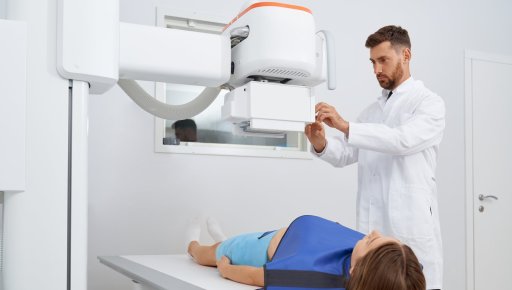Pediatrics is the branch of medicine that deals with the development, functioning, and malfunctioning of the body of infants, children, and adolescents. Nurses are trained to care for the sick, unlike doctors trained to treat illnesses with medicine. Pediatric nurses are simply nursing professionals who work in pediatrics.
Pediatric registered nurses are valuable members of the healthcare industry. They work in hospitals and clinics with a team of medical professionals to help children recover from illnesses or injuries. These professionals typically need experience assisting children as the care they need varies from adult care.
Pediatric RNs are often trained to work well with their assigned doctor or provider. These RNs are specifically trained to administer care to children, understanding how they may react differently to injury, illness, medication, or stress. Pediatric nurses play a unique role in any healthcare team, ensuring that the youngest, most vulnerable patients receive the best care possible.
Pediatric nurses are special people—they are empathetic, patient, and noble. Their high emotional intelligence allows them to manage their personal feelings while addressing children’s medical needs in a caring way. Nurses specializing in pediatrics are in high demand, so pediatric nurses turn to travel nursing to help hospitals with their staffing shortages and can be compensated well for their efforts.
Pediatric nursing is a dynamic and fulfilling career path for those passionate about caring for children. This comprehensive guide provides a roadmap for anyone entering this specialized field.
What does a pediatric nurse do?
Pediatric nursing is a specialized field that provides healthcare to infants, children, and adolescents. Pediatric nurses work with children from the time they are infants until the age of 18. Some pediatric nurses may work in health clinics that treat children until age 21.
As a pediatric nurse, you will play a crucial role in promoting and maintaining the health of the youngest members of our society. The field requires unique skills, a deep understanding of child development, and a compassionate approach to care.
Pediatric nurses focus on keeping patients as healthy as possible. They also assist physicians in creating and carrying out plans to keep patients healthy throughout childhood and adulthood.
Pediatric nursing demands a diverse skill set to care for young patients effectively. Beyond training and mastering basic nursing skills, pediatric nurses must be adept at communicating with children of different ages. Patience, empathy, and the ability to create a comforting environment are essential when working with pediatric patients and their families.
Most pediatric nurses work in primary care and see patients with various conditions. Pediatric nurses specializing in a subspeciality of nursing profession like pediatric oncology nursing, pediatric critical care nursing, or neonatal critical care nursing see a narrower variety of conditions based on their subspecialty.
The duties of pediatric nurses likely vary based on where the nurse works. If a pediatric nurse works in a clinic with a pediatrician, they usually assist primary care doctors in conducting well-child visits, administering immunizations, and documenting a child’s growth. Pediatric nurses in a hospital or an oncology department may focus more on administering chemotherapy and other specialty medications to children.
Key responsibilities
A pediatric nurse works in a hospital, clinic, or other healthcare setting where children receive routine and specialized care. Typical conditions include standing for long periods and working 10-hour shifts or longer. Core responsibilities of pediatric nurses include:
- Teaching parents how to care for their child in person and over the phone
- Comforting children who may be scared or confused
- Caring for critically injured or chronically ill children
- Performing a thorough physical examination as necessary for the medical condition
- Reading and interpreting lab results to help physicians make diagnoses
- Performing therapy and administering medication to children
What skills does a pediatric nurse need?
Developing a well-rounded skill set that includes more than clinical knowledge can help pediatric nurses thrive on the job. Some of the most useful skills include:
- Empathy
- Compassion
- Decision-making skills
- Organization
- Communication and interpersonal skills
- Industry knowledge
- Attention to detail
- Adaptability and flexibility
Pediatric nurses should adapt these skills to their work environment and each patient they serve.

Pediatric nurses vs. pediatricians
A pediatric nurse’s job description is often conflated with a pediatrician’s—although both look after children. They primarily have different specializations and responsibilities.
While a pediatrician is well-versed in diseases, medicines, treatments, and surgeries, a nurse’s job is more direct and involves one-on-one interaction with patients and caregivers. For example, a pediatrician prescribes medicine and performs the necessary surgical procedures, whereas the nurses administer the prescribed medicine and look after the patient before and after the surgery.
Where do pediatric nurses work?
Most pediatric nurses work in hospitals. Others work for clinics, educational services, ambulatory healthcare, and social service agencies.
Community and teaching hospitals
Most nurses work in this setting. Nurses in teaching hospitals will likely have longer shifts. They may work nights and weekends. They care for patients before and after surgery, participate in rounds with doctors, and give IV medications.
Specialty hospitals
Nurses work about the same hours and perform similar tasks as they would in community hospitals. However, they may provide more intensive care for patients. Their patients may have varying serious health care needs, such as end-of-life care, cancer, or developmental disabilities.
Physician’s offices or outpatient care centers
Nurses in physician's offices and outpatient care centers often work regular business hours. They may see the same doctor's offices or patients routinely for primary or specialty care. They greet patients, schedule appointments, and answer parents’ questions by phone in addition to their other nursing duties.
How to become a pediatric nurse
Pediatric registered nurses need to earn a degree and apply for licensure to practice. Here are the steps you can take to become a pediatric registered nurse:
- Earn a degree.
- Become a licensed registered nurse.
- Undergo a residency and get nursing experience.
- Earn a pediatric registered nurse certification.
Earn a nursing degree
You need at least a two-year associate degree in nursing (ADN) to take the NCLEX-RN and earn your license. You may find more job openings if you earn your Bachelor of Science in Nursing (BSN) instead, which takes four years to complete.
Become a licensed registered nurse
After graduation, pass the NCLEX-RN and apply for your RN license in your state. Once you have your license, you can consider a nursing career by getting additional certifications. Nurse managers prefer certified pediatric nurses 90% of the time, according to the Pediatric Nursing Certification Board (PNCB).
Undergo a residency and get nursing experience
The Pediatric Nursing Certification Board requires 1800 hours of pediatric nursing experience within the last two years. The American Nurses Credentialing Center requires 2000 hours of pediatric nursing experience within the last three years and 30 hours of continuing education.
Earn a pediatric registered nurse certification
Pediatric nurses should consider applying for the Pediatric Nursing Board Certification from the American Nurses Credentialing Center or the Certified Pediatric Nurse certification from the PNCB.
Both certifications require nurses to hold an unrestricted license and at least two years of full-time pediatric nursing experience.

FAQs about pediatric nurses
What do pediatric nurses focus on?
Pediatric nurses focus on working with doctors, parents, and patients to help children become and stay as healthy as possible into adulthood.
Why is being a pediatric nurse hard?
Pediatric nurses must learn and remember a lot about all the stages of child development. Pediatric nurses need many interpersonal skills to explain treatments and diagnoses calmly and comfortably.
What is the job outlook for a pediatric nurse?
The BLS projects a 6% job growth for RNs across all nursing specialties between 2021 and 2031.
What does a typical day look like for a pediatric nurse?
Pediatric nurses examine patients, record health information and vitals, treat patients, educate patients and parents, and comfort patients daily. Yet, pediatric nurses do not have typical days because their patients vary so much in age, health status, and developmental stage.
Find a pediatric nursing job with Prolink
Prolink is here to help you make the next move in your career. You’ll be assisted by a dedicated team of recruiters throughout the entire process, helping you find an optimal position, location, and benefits package for your needs. Click below to search nursing jobs now.









